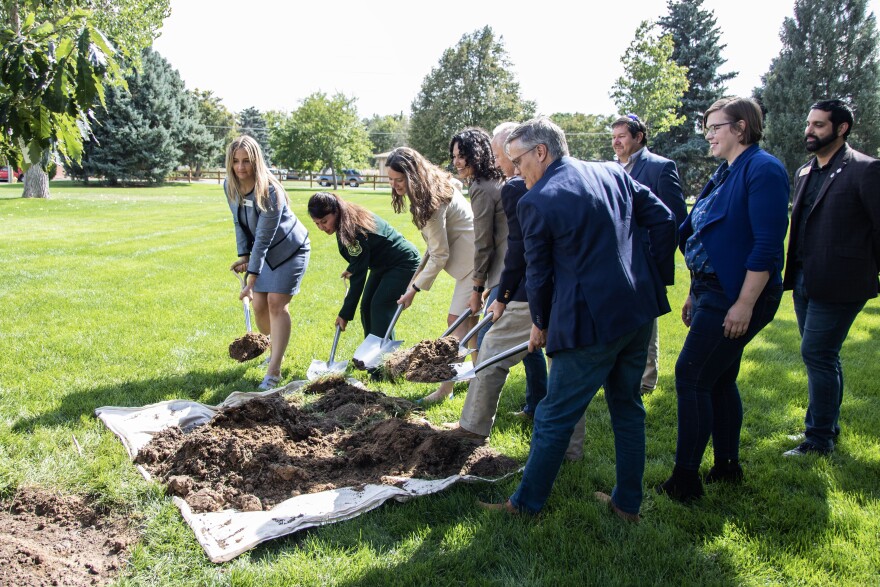The Forest Service is awarding more than $1 billion nationwide in grants to plant trees in cities, tackle climate change and make green spaces more accessible to less wealthy neighborhoods.
Nearly $70 million will go to more than 30 projects in the Mountain West, which include expanding urban orchards in Nevada, improving tree canopies in Colorado and adding education programs in New Mexico.
The goal is to help communities that do not have easy access to parks and forests, and are more vulnerable to the urban heat island effect. These areas have historically been overlooked when it comes to adding green spaces, and as a result, residents face increased energy bills, bad air quality and a greater risk of sickness and death.
Xochitl Torres Small is the deputy secretary of the U.S. Department of Agriculture, which oversees the Forest Service. Speaking at a recent news conference in a Denver suburb, she shared her experience growing up in New Mexico without many trees.

“The places where there was a community that had beautiful trees like this, those were the fancy communities. Those are the places … that I didn't get to live in,” she said.
She believes the grant projects will make a big difference for communities like the one she grew up in.
“You're focusing on places and welcoming people who might not have felt at home in the fancy neighborhoods with the big trees and making sure that people know that they deserve that, too,” Torres Small said when announcing the funding. “That there is an opportunity for a cooler place for their kids to enjoy in a park nearby shaded by the trees.”

Research shows that trees can reduce temperatures from 11 to 19 degrees Fahrenheit, making them a key solution to offsetting heat.
Matthew McCombs of the Colorado State Forest Service, who was also at the news conference, said his agency even has a bumper sticker that says just that.
“You know what it feels like to walk on the shady side and walk on a non-shady side of the street,” said McCombs, the state forester. “You may have crossed the street in almost abject desperation to experience that. So imagine an entire community where that doesn't exist on either side of the street. We're going to change that fundamentally.”
It’s all part of the agency’s Urban and Community Forestry Program. It received more than 800 applications requesting more than $6 billion in funding – showcasing the desire to grow more trees in urban areas. The grants are funded by the federal Inflation Reduction Act.
Colorado and New Mexico received the most grant money in our region – more than $20 million each to fund green spaces projects. Nevada was not far behind with nearly $16 million, while Idaho, Utah and Wyoming received less than $6 million each.
Torres Small said representatives are already knocking on people’s doors to ask if they want to plant a tree.
“It means you can have folks in the community making sure that the trees actually grow and that it turns into a lifelong investment,” she said.
This story was produced by the Mountain West News Bureau, a collaboration between Wyoming Public Media, Nevada Public Radio, Boise State Public Radio in Idaho, KUNR in Nevada, KUNC in Colorado and KANW in New Mexico, with support from affiliate stations across the region. Funding for the Mountain West News Bureau is provided in part by the Corporation for Public Broadcasting.










